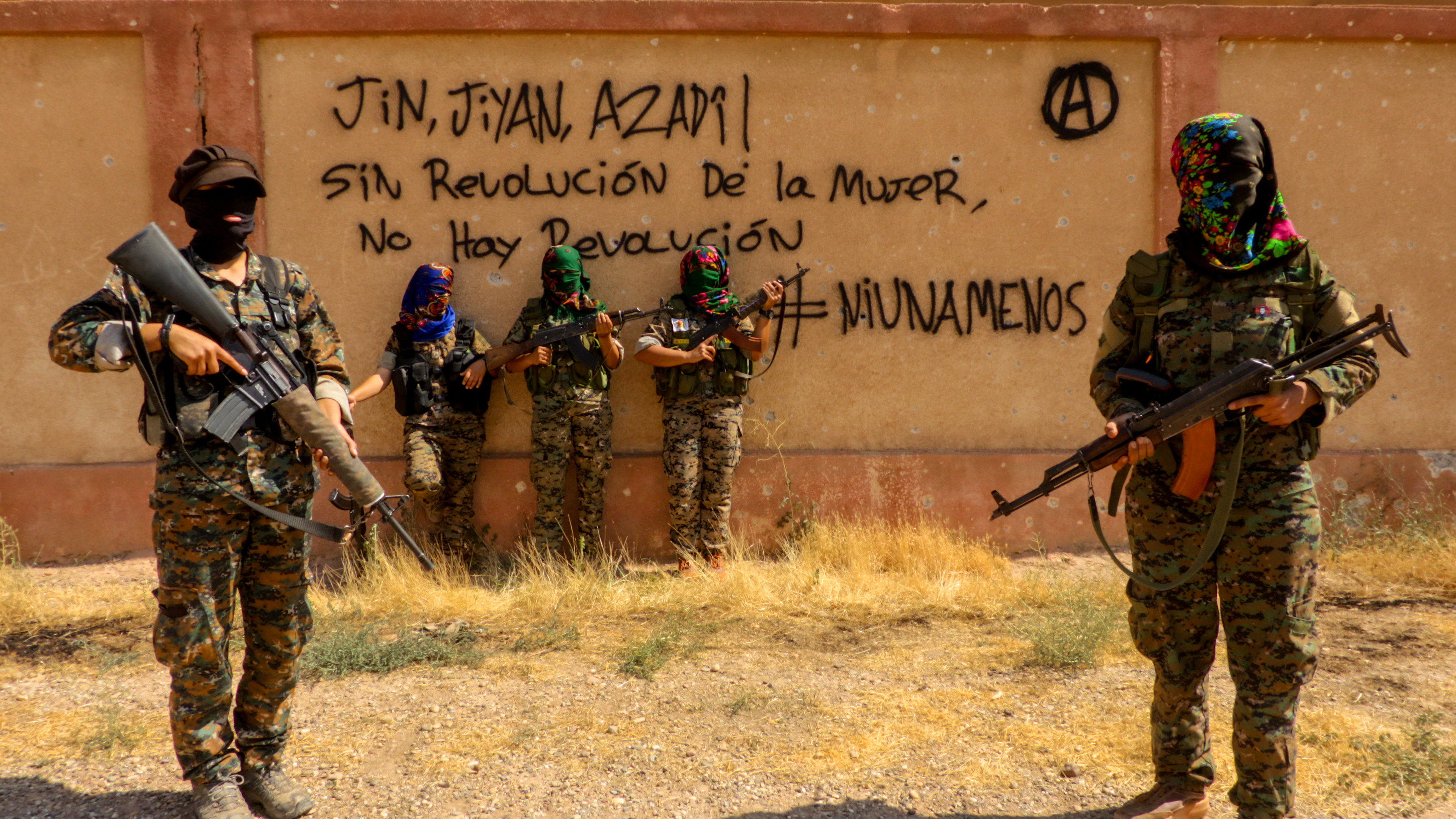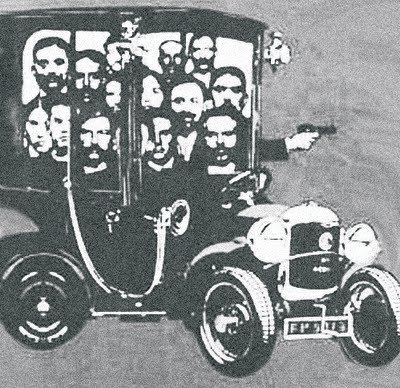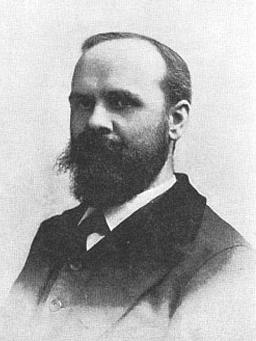|
Anarcho-communism
Anarcho-communism, also known as anarchist communism, (or, colloquially, ''ancom'' or ''ancomm'') is a political philosophy and anarchist school of thought that advocates communism. It calls for the abolition of private property but retains respect for personal property and collectively-owned items, goods, and services. It supports social ownership of property and direct democracy among other horizontal networks for the allocation of production and consumption based on the guiding principle " From each according to his ability, to each according to his needs". Some forms of anarcho-communism, such as insurrectionary anarchism, are strongly influenced by egoism and radical individualism, believing anarcho-communism to be the best social system for realizing individual freedom. [...More Info...] [...Related Items...] OR: [Wikipedia] [Google] [Baidu] |
Anarchist Schools Of Thought
Anarchism is the political philosophy which holds ruling classes and the state to be undesirable, unnecessary and harmful, The following sources cite anarchism as a political philosophy: Slevin, Carl. "Anarchism." ''The Concise Oxford Dictionary of Politics''. Ed. Iain McLean and Alistair McMillan. Oxford University Press, 2003. or alternatively as opposing authority and hierarchical organization in the conduct of human relations. Proponents of anarchism, known as anarchists, advocate stateless societies based on non-hierarchical voluntary associations. However, anarchist schools of thought can differ fundamentally, supporting anything from extreme individualism to complete collectivism to more syncretic tendencies (such as Insurrectionary anarchism). Strains of anarchism have often been divided into the categories of social anarchism and individualist anarchism or similar dual classifications, also including green anarchism and post-left anarchism. Ostergaard, Geoffrey. "Anar ... [...More Info...] [...Related Items...] OR: [Wikipedia] [Google] [Baidu] |
Communism
Communism (from Latin la, communis, lit=common, universal, label=none) is a far-left sociopolitical, philosophical, and economic ideology and current within the socialist movement whose goal is the establishment of a communist society, a socioeconomic order centered around common ownership of the means of production, distribution, and exchange which allocates products to everyone in the society.: "One widespread distinction was that socialism socialised production only while communism socialised production and consumption." Communist society also involves the absence of private property, social classes, money, and the state. Communists often seek a voluntary state of self-governance, but disagree on the means to this end. This reflects a distinction between a more libertarian approach of communization, revolutionary spontaneity, and workers' self-management, and a more vanguardist or communist party-driven approach through the development of a constitutional s ... [...More Info...] [...Related Items...] OR: [Wikipedia] [Google] [Baidu] |
Insurrectionary Anarchism
Insurrectionary anarchism is a revolutionary theory and tendency within the anarchist movement that emphasizes insurrection as a revolutionary practice. It is critical of formal organizations such as labor unions and federations that are based on a political programme and periodic congresses. Instead, insurrectionary anarchists advocate informal organization and small affinity group based organization. Insurrectionary anarchists put value in attack, permanent class conflict and a refusal to negotiate or compromise with class enemies. Origins and evolution 19th century An influential individualist concept of insurrection appears in the book of Max Stirner, '' The Ego and Its Own'' from 1844. There, he manifests: Mikhail Bakunin "was historically important to the development of an anarchism that focused its force in insurrection. Unlike Marx, who built his support in the First International, mostly within the central executive structure, Bakunin worked to build support ... [...More Info...] [...Related Items...] OR: [Wikipedia] [Google] [Baidu] |
Insurrectionary Anarchism
Insurrectionary anarchism is a revolutionary theory and tendency within the anarchist movement that emphasizes insurrection as a revolutionary practice. It is critical of formal organizations such as labor unions and federations that are based on a political programme and periodic congresses. Instead, insurrectionary anarchists advocate informal organization and small affinity group based organization. Insurrectionary anarchists put value in attack, permanent class conflict and a refusal to negotiate or compromise with class enemies. Origins and evolution 19th century An influential individualist concept of insurrection appears in the book of Max Stirner, '' The Ego and Its Own'' from 1844. There, he manifests: Mikhail Bakunin "was historically important to the development of an anarchism that focused its force in insurrection. Unlike Marx, who built his support in the First International, mostly within the central executive structure, Bakunin worked to build support ... [...More Info...] [...Related Items...] OR: [Wikipedia] [Google] [Baidu] |
Individualism
Individualism is the moral stance, political philosophy, ideology and social outlook that emphasizes the intrinsic worth of the individual. Individualists promote the exercise of one's goals and desires and to value independence and self-reliance and advocate that interests of the individual should achieve precedence over the state or a social group while opposing external interference upon one's own interests by society or institutions such as the government. Individualism is often defined in contrast to totalitarianism, collectivism and more corporate social forms. Individualism makes the individual its focus and so starts "with the fundamental premise that the human individual is of primary importance in the struggle for liberation". Anarchism, existentialism, liberalism and libertarianism are examples of movements that take the human individual as a central unit of analysis.L. Susan Brown. '' The Politics of Individualism: Liberalism, Liberal Feminism, and Anarchis ... [...More Info...] [...Related Items...] OR: [Wikipedia] [Google] [Baidu] |
Egoist Anarchism
Egoist anarchism or anarcho-egoism, often shortened as simply egoism, is a school of anarchist thought that originated in the philosophy of Max Stirner, a 19th-century philosopher whose "name appears with familiar regularity in historically orientated surveys of anarchist thought as one of the earliest and best known exponents of individualist anarchism". Max Stirner and his philosophy Max Stirner Johann Kaspar Schmidt (October 25, 1806 – June 26, 1856), better known as Max Stirner (the pen name he adopted from a schoolyard nickname he had acquired as a child because of his high brow, which in German is termed ''Stirn''), was a German philosopher, who ranks as one of the literary precursors of nihilism, existentialism, post-modernism and anarchism, especially of individualist anarchism. Stirner's main work is '' The Ego and Its Own'' (''Der Einzige und sein Eigentum'' in German, which translates literally as ''The Only One and his Property''). This work was first pu ... [...More Info...] [...Related Items...] OR: [Wikipedia] [Google] [Baidu] |
Individualism
Individualism is the moral stance, political philosophy, ideology and social outlook that emphasizes the intrinsic worth of the individual. Individualists promote the exercise of one's goals and desires and to value independence and self-reliance and advocate that interests of the individual should achieve precedence over the state or a social group while opposing external interference upon one's own interests by society or institutions such as the government. Individualism is often defined in contrast to totalitarianism, collectivism and more corporate social forms. Individualism makes the individual its focus and so starts "with the fundamental premise that the human individual is of primary importance in the struggle for liberation". Anarchism, existentialism, liberalism and libertarianism are examples of movements that take the human individual as a central unit of analysis.L. Susan Brown. '' The Politics of Individualism: Liberalism, Liberal Feminism, and Anarchis ... [...More Info...] [...Related Items...] OR: [Wikipedia] [Google] [Baidu] |
Political Philosophy
Political philosophy or political theory is the philosophical study of government, addressing questions about the nature, scope, and legitimacy of public agents and institutions and the relationships between them. Its topics include politics, liberty, justice, property, rights, law, and the enforcement of laws by authority: what they are, if they are needed, what makes a government legitimate, what rights and freedoms it should protect, what form it should take, what the law is, and what duties citizens owe to a legitimate government, if any, and when it may be legitimately overthrown, if ever. Political theory also engages questions of a broader scope, tackling the political nature of phenomena and categories such as identity, culture, sexuality, race, wealth, human-nonhuman relations, ethics, religion, and more. Political science, the scientific study of politics, is generally used in the singular, but in French and Spanish the plural (''sciences politiques'' ... [...More Info...] [...Related Items...] OR: [Wikipedia] [Google] [Baidu] |
Bloomsbury Publishing
Bloomsbury Publishing plc is a British worldwide publishing house of fiction and non-fiction. It is a constituent of the FTSE SmallCap Index. Bloomsbury's head office is located in Bloomsbury, an area of the London Borough of Camden. It has a US publishing office located in New York City, an India publishing office in New Delhi, an Australia sales office in Sydney CBD and other publishing offices in the UK including in Oxford. The company's growth over the past two decades is primarily attributable to the ''Harry Potter'' series by J. K. Rowling and, from 2008, to the development of its academic and professional publishing division. The Bloomsbury Academic & Professional division won the Bookseller Industry Award for Academic, Educational & Professional Publisher of the Year in both 2013 and 2014. Divisions Bloomsbury Publishing group has two separate publishing divisions—the Consumer division and the Non-Consumer division—supported by group functions, namely Sales and Mar ... [...More Info...] [...Related Items...] OR: [Wikipedia] [Google] [Baidu] |
From Each According To His Ability, To Each According To His Needs
"From each according to his ability, to each according to his needs" (german: Jeder nach seinen Fähigkeiten, jedem nach seinen Bedürfnissen) is a slogan popularised by Karl Marx in his 1875 '' Critique of the Gotha Programme''. The principle refers to free access to and distribution of goods, capital and services. In the Marxist view, such an arrangement will be made possible by the abundance of goods and services that a developed communist system will be capable to produce; the idea is that, with the full development of socialism and unfettered productive forces, there will be enough to satisfy everyone's needs. Origin of the phrase The complete paragraph containing Marx's statement of the creed in the '' Critique of the Gotha Programme'' is as follows: Although Marx is popularly thought of as the originator of the phrase, the slogan was common within the socialist movement. For example, August Becker in 1844 described it as the basic principle of communism and Louis Bla ... [...More Info...] [...Related Items...] OR: [Wikipedia] [Google] [Baidu] |
Renzo Novatore
Abele Rizieri Ferrari (May 12, 1890 – November 29, 1922), better known by the pen name Renzo Novatore, was an Italian individualist anarchist, illegalist and anti-fascist poet, philosopher and militant, now mostly known for his posthumously published book ''Toward the Creative Nothing'' (''Verso il nulla creatore'') and associated with ultra-modernist trends of futurism. His thought was influenced by Max Stirner, Friedrich Nietzsche, Georges Palante, Oscar Wilde, Henrik Ibsen, Arthur Schopenhauer and Charles Baudelaire. Biography Background Abele Ricieri Ferrari was born in Arcola, Liguria, Italy on May 12, 1890 in a poor peasant family. He did not adjust to school discipline and quit in the first year never coming back after that.Novatore: a biography (new corrected version, thanks to Penwan) [...More Info...] [...Related Items...] OR: [Wikipedia] [Google] [Baidu] |
Greenwood Publishing Group
Greenwood Publishing Group, Inc. (GPG), also known as ABC-Clio/Greenwood (stylized ABC-CLIO/Greenwood), is an educational and academic publisher ( middle school through university level) which is today part of ABC-Clio. Established in 1967 as Greenwood Press, Inc. and based in Westport, Connecticut, GPG publishes reference works under its Greenwood Press imprint, and scholarly, professional, and general interest books under its related imprint, Praeger Publishers (). Also part of GPG is Libraries Unlimited, which publishes professional works for librarians and teachers. History 1967–1999 The company was founded as Greenwood Press, Inc. in 1967 by Harold Mason, a librarian and antiquarian bookseller, and Harold Schwartz who had a background in trade publishing. Based in Greenwood, New York, the company initially focused on reprinting out-of-print works, particularly titles listed in the American Library Association's first edition of ''Books for College Libraries'' (1967), un ... [...More Info...] [...Related Items...] OR: [Wikipedia] [Google] [Baidu] |






